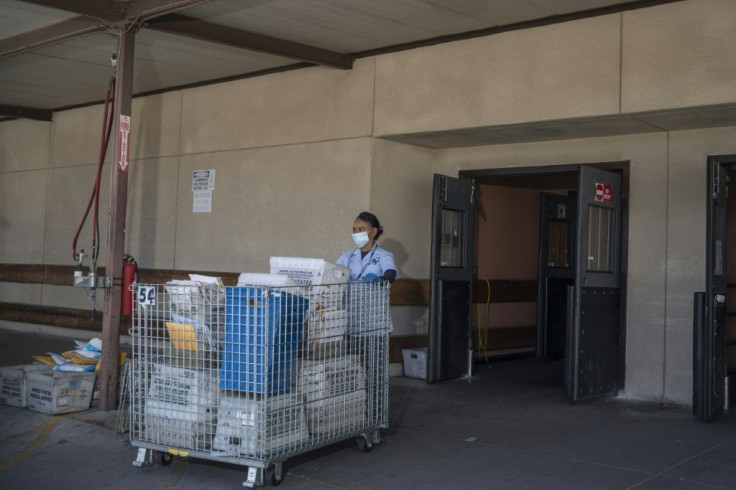US Services Sector Ends Decade Of Growth, Contracts In April: Survey

The coronavirus pandemic slammed the US service sector in April, sending it contracting for the first time in nearly 11 years, according to an industry survey released Tuesday.
The drop in the Institute for Supply Management's (ISM) non-manufacturing index -- to 41.8 percent from 52.5 percent in March -- was less severe than expected but nonetheless a sign the dominant sector of the American economy was in dire straits.
"We've hit some milestones here that unfortunately we wouldn't like to see out of this sector," the survey's chair Anthony Nieves told reporters.
The fall below 50 percent indicates the sector is contracting for the first time since the tail end of the global financial crisis in December 2009, and it was the lowest reading since March of that year.
The business activity index fell 22 points from March to 26 percent, the lowest since ISM began the survey in 1997, while the new orders index fell 20 points to 32.9 percent.
Tens of millions of people in the United States have lost their jobs since the pandemic hit and businesses began shutting down in mid-March, and the employment index for April showed a decrease of 17 points to a paltry 30 percent.
Only two industries -- public administration and finance and insurance -- reported growth in the month, while all others contracted.
After weeks of lockdowns, some states across the US are moving to allow selected businesses to reopen with restrictions, even though the virus has not subsided.
But Rubeela Farooqi of High Frequency Economics predicted there was no quick bounce back in store for the services sector due to disrupted supply chains and slowed demand.
"An end of shutdowns is a positive, but ongoing virus containment practices will keep activity subdued in the near term," she said in an analysis.
And the news in the ISM survey would have been worse if not for a surge in one key metric: the supplier deliveries index, which hit an all-time high of 78.3 percent.
But that is not a good thing, since the a higher number indicates slower deliveries. Though usually seen a sign of improving demand and economic conditions, April's reading "was primarily a product of supply problems related to the coronavirus (COVID-19) pandemic," the survey said.
cs
© Copyright AFP 2024. All rights reserved.





















